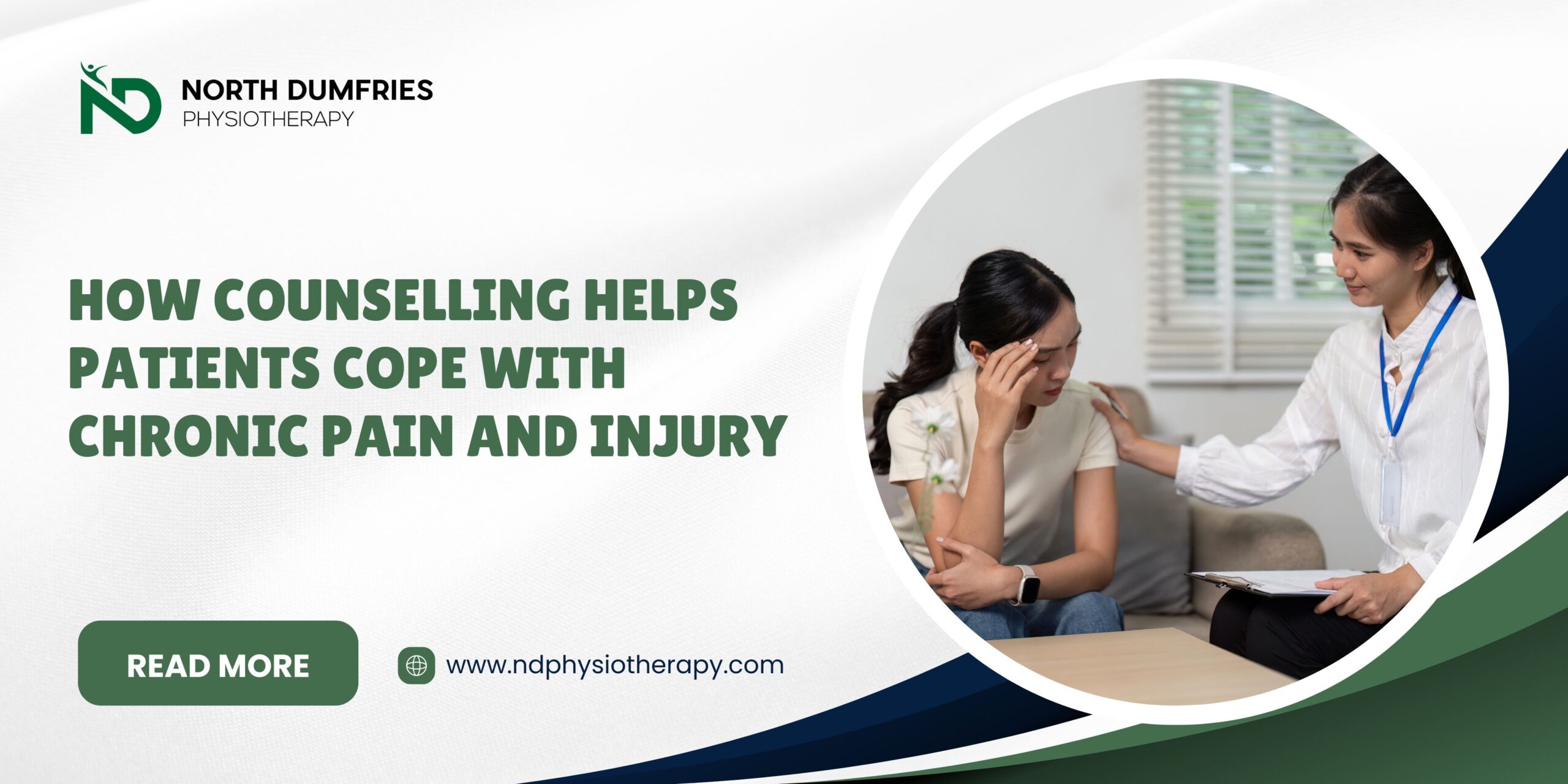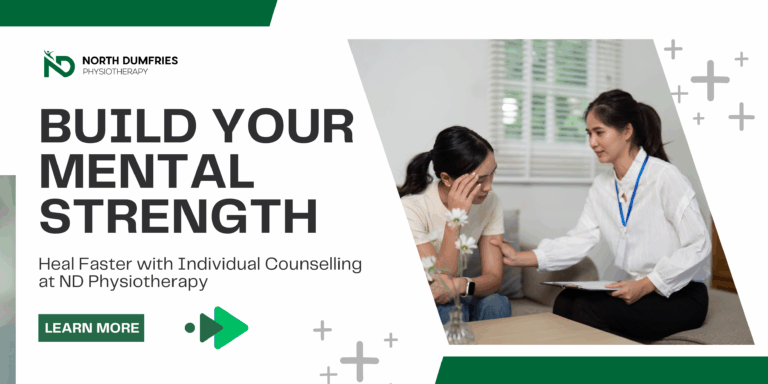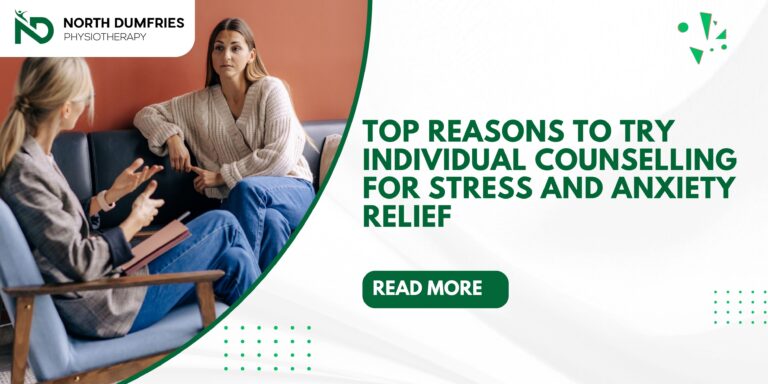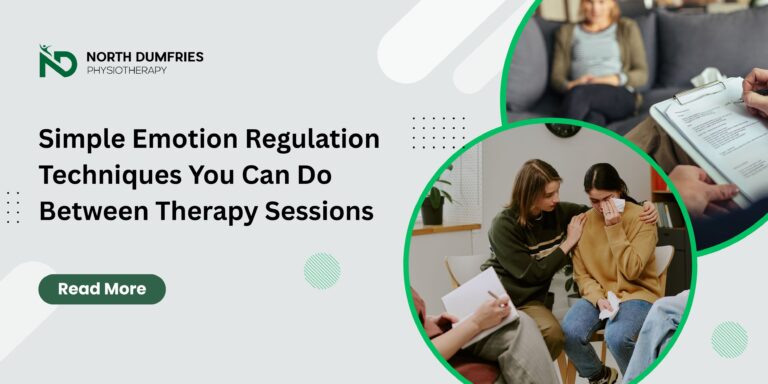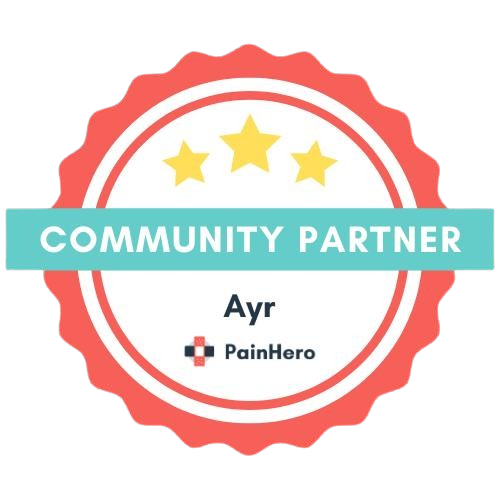Counselling helps patients cope with chronic pain and injury by teaching simple ways to manage pain, stress, and emotions. It focuses on how the mind and body work together, helping people understand pain and live better with it.
According to the World Health Organization (WHO), around 1 in 5 adults globally experience chronic pain that lasts longer than three months. For many, it is not just physical, as it affects sleep, mood, and confidence. Counselling provides practical support that helps patients rebuild control, stay active, and find balance in their daily lives during long-term recovery.
Understanding Chronic Pain
Chronic pain means pain that lasts longer than the normal healing time, usually more than 12 weeks. It can come from an old injury, arthritis, nerve damage, or even without a clear medical reason. The Centers for Disease Control and Prevention (CDC) reports that chronic pain affects over 50 million adults in the United States. This makes it one of the most common health challenges worldwide.
This happens because the body’s nervous system sometimes stays on high alert even after the injury heals. The brain continues to send pain signals that create an ongoing discomfort. This is why physical healing does not always mean pain will stop. Understanding this connection is the first step toward better management through psychosocial therapy for chronic pain.
Psychological Impact of Chronic Pain
Chronic pain often affects emotional and mental health as much as the body. Constant pain can cause frustration, sadness, and loss of motivation. Many people feel trapped, as if pain controls every part of life. Studies from the National Institutes of Health (NIH) show that people with long-term pain are more likely to experience anxiety and depression than those without it.
This emotional strain can also make pain worse. Worry, stress, and poor sleep increase the body’s sensitivity, creating a cycle that is hard to break. That is where mental health support for pain becomes essential. It helps patients understand how emotions, stress, and thoughts influence pain levels and teaches ways to manage them better.
How Counselling Can Help
Counselling helps people handle the emotional side of pain and injury recovery. It is not about ignoring pain; it is about learning how to respond to it differently. Here is how it helps:
- Builds emotional strength: Counselling supports people in managing fear, frustration, and sadness that come with chronic pain. Over time, patients feel more confident and less controlled by their discomfort.
- Teaches daily coping skills: Through pain management counselling services, patients learn simple tools like pacing, breathing, and relaxation. These habits reduce stress and make everyday tasks easier to manage.
- Encourages positive thinking: Counselling helps replace negative beliefs such as “I will never get better” with realistic, encouraging thoughts. This mindset shift improves motivation and emotional balance.
- Improves sleep and focus: Good sleep and calm focus are essential for healing. Counselling helps people develop better routines that support rest, concentration, and recovery.
- Promotes long-term confidence: Counselling builds the belief that progress is possible, even on tough days. It helps patients return to work, hobbies, and social life with renewed trust in their body and mind.
Therapy Techniques That Make a Difference
Different types of counselling and therapy can support patients coping with long-term pain or injuries.
Cognitive Behavioural Therapy (CBT)
CBT helps people notice and change unhelpful thought patterns about their pain. Instead of thinking, “I will never get better,” patients learn to focus on progress, pacing, and small wins. Research published in the Journal of Pain found that CBT can significantly improve pain-related distress and overall quality of life.
Acceptance and Commitment Therapy (ACT)
ACT teaches patients to accept pain as part of their experience while still doing what matters most to them. This type of therapy for chronic injury recovery encourages mindfulness, flexibility, and movement toward valued activities instead of total avoidance.
Pain Neuroscience Education (PNE)
This approach helps patients understand how the brain and nerves process pain. Studies by the National Institutes of Health (NIH) show that patients who understand the science of pain often experience less fear and feel more confident about physical therapy and movement.
Counselling in Injury Recovery
It is common to feel frustrated, fearful, or uncertain about the future after an injury. Emotional recovery is just as important as physical healing. Counselling supports people in rebuilding motivation and dealing with setbacks after an injury.
During recovery, some patients develop a fear of re-injury, which slows down progress. Counselling helps manage this fear by setting step-by-step goals and celebrating small wins. This approach, known as rehabilitation counselling for injury, focuses on emotional strength, realistic expectations, and patience throughout the recovery journey.
Combining counselling with physiotherapy creates a balanced approach; while the body heals, the mind learns confidence again. This balance leads to faster recovery and lasting improvement in both function and mood.
Coping Strategies Taught in Counselling
Counselling gives patients tools they can use every day to manage their symptoms and emotions. Some simple and effective strategies include:
- Activity pacing: Breaking large tasks into smaller steps to prevent flare-ups.
- Breathing and relaxation: Calming the nervous system through slow, deep breathing.
- Flare-up plans: Knowing what to do when pain spikes, like gentle stretches, rest, or heat therapy.
- Thought reframing: Replacing harsh thoughts with balanced, encouraging ones.
- Sleep routine: Maintaining consistent sleep times to help the body recover better.
These skills from therapy for chronic injury recovery help people handle pain without losing focus on daily life. Over time, they notice more confidence and less fear around movement or activity.
When to Consider Counselling for Pain or Injury
It may be time to explore pain management counselling services if you:
- Feel pain that lasts for three months or more.
- Have fear of movement or re-injury.
- Struggle with mood changes or sleep issues.
- Find that regular physiotherapy alone is not enough.
- Want to improve motivation and emotional balance during recovery.
The Centers for Disease Control and Prevention (CDC) note that combining physical therapy with counselling and behavioural approaches often results in better patient satisfaction and lower dependence on medication.
FAQs
1. Can counselling replace physiotherapy or medical treatment?
No. Counselling complements physiotherapy, not replaces it. It supports the mental and emotional side of recovery while physical therapy restores strength and movement. Together, they create a balanced, long-term recovery plan.
2. How long does it take to see improvement with counselling?
Most people start noticing positive changes within a few weeks, such as reduced fear, improved mood, and better sleep. Long-term benefits depend on regular practice and collaboration between you and your therapist.
3. Is counselling suitable for sports or workplace injuries?
Yes. Counselling services for injury recovery are often part of rehabilitation for athletes and workers. They help manage frustration, build motivation, and reduce the mental barriers that slow physical healing.
4. Can counselling help if medication doesn’t work for pain?
Yes. Counselling offers different ways to manage pain perception and stress levels. The National Institute for Health and Care Excellence (NICE) recommends psychological support as a safe and effective option for people whose pain continues despite medication.
Conclusion
Counselling can help with dealing with chronic pain or recovering from an injury. It helps patients understand pain, reduce emotional distress, and rebuild their confidence to live actively again. With consistent guidance, people learn to respond to pain in healthier ways instead of feeling controlled by it.
If chronic pain or injury has been limiting your daily life, consider reaching out for professional help. At ND Physiotherapy, our team supports both physical and emotional recovery, helping you move forward with strength, comfort, and confidence.


